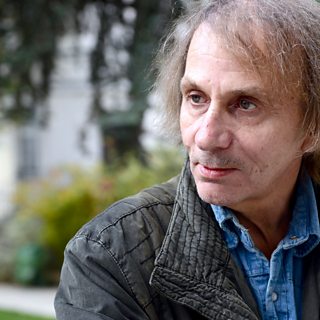I listened to a gentle interview with the French Author Michel
Houellebecq transmitted by the Swiss Radio.
He said two things about the book of his that won
France's most prestigious Prix Goncourt:
1. He saw Conservatism as a source of progress
because it only changes something when it is unavoidable. Conservatism, so
Michel, stays with that which deserves being protected. It is not reactionary
but appreciative of what is valuable.
2. More relevant here, he ventured into the topic of
sexuality. He saw it as always bound to love, and as such, he took it to be one
of the few joys in life. He can be quite lyrical about the real togetherness of
man and woman.
Now, in his newest book, he is even more controversial than before, although many French people see him as prophetic. He is a gentle atheist -- but where the topic of death is concerned he does wonder about the eternal.
Below is a British view of him:
Ed Stourton profiles Michel Houellebecq, the controversial novelist who loves to provoke.
https://www.bbc.co.uk/sounds/play/b068lst2. You need to copy the address to a browser.
Below is a British view of him:
Ed Stourton profiles Michel Houellebecq, the controversial novelist who loves to provoke.
https://www.bbc.co.uk/sounds/play/b068lst2. You need to copy the address to a browser.
 | |||
| .Michel Houellebecq |

